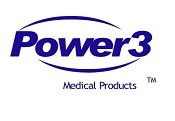- Sections :
- Crime & Public Safety
- Restaurants & Food
- Sports
- More
Categories
Power3's Breast Cancer Blood Test Introduced to The Middle East

The most prevalent cancer among women, breast cancer affects approximately 1.2 million women worldwide. While millions of American women receive mammography screenings each year, many women in the Middle East avoid this important screening procedure, often because of strong underlying cultural bias.
“Fully 70% of worldwide breast cancer cases occur in developing countries,” says Dr. Essam Sheta, a researcher at Power3 Medical Products, Inc. (OTCBB: PWRM), a company specializing in the development and commercialization of diagnostic tests for the early detection of breast cancer and neurodegenerative diseases. “Lack of early detection and diagnosis is the basis for this high incidence rate. While in the U.S., doctors use mammography, ultrasound, and MRI to diagnosis women with breast cancer, these procedures are available, but scarce in developing countries.”
Power3 recently developed a diagnostic tool for the detection of breast cancer called BC-SeraPro™. A simple, minimally invasive blood test for breast cancer, the test analyzes biomarkers, or specific proteins, in a woman’s blood serum, to detect breast cancer.
Recognizing the need for a test such as this in the Middle East, Power3 has recently introduced BC-SeraPro to twelve Middle Eastern countries: Bahrain, Egypt, Iraq, Jordan, Kuwait, Lebanon, Saudi Arabia, Oman, Qatar, Syria, United Arab Emirates, and Yemen. In addition to providing these Middle East with a diagnostic test more suitable for their culture, the test will be a supplement to traditional mammography and MRI.
Over the past ten years, half the number of American women who had annual mammograms received false positive results, often leading to painful and unnecessary breast tissue biopsies. A sensitive blood serum diagnostic test like BC-SeraPro can help curtail the anxiety generated from false positive results that lead to unnecessary breast biopsy. Breast cancer specialists envision the test as a supplement to be performed in conjunction with the mammography. If the mammogram is positive and the test indicates a positive result, then the patient will proceed to MRI or biopsy.
“We believe the test provides a promising alternative for the detection of breast cancer at its earlier stages, thereby alleviating the problems that so many Middle Eastern women face because of late-stage detection,” says Dr. Sheta. “We are currently in discussions with both international and domestic partners as we expand the geographical distribution of the test.”
For more information, please visit the Power3 Medical's Web site.
“Fully 70% of worldwide breast cancer cases occur in developing countries,” says Dr. Essam Sheta, a researcher at Power3 Medical Products, Inc. (OTCBB: PWRM), a company specializing in the development and commercialization of diagnostic tests for the early detection of breast cancer and neurodegenerative diseases. “Lack of early detection and diagnosis is the basis for this high incidence rate. While in the U.S., doctors use mammography, ultrasound, and MRI to diagnosis women with breast cancer, these procedures are available, but scarce in developing countries.”
Power3 recently developed a diagnostic tool for the detection of breast cancer called BC-SeraPro™. A simple, minimally invasive blood test for breast cancer, the test analyzes biomarkers, or specific proteins, in a woman’s blood serum, to detect breast cancer.
Recognizing the need for a test such as this in the Middle East, Power3 has recently introduced BC-SeraPro to twelve Middle Eastern countries: Bahrain, Egypt, Iraq, Jordan, Kuwait, Lebanon, Saudi Arabia, Oman, Qatar, Syria, United Arab Emirates, and Yemen. In addition to providing these Middle East with a diagnostic test more suitable for their culture, the test will be a supplement to traditional mammography and MRI.
Over the past ten years, half the number of American women who had annual mammograms received false positive results, often leading to painful and unnecessary breast tissue biopsies. A sensitive blood serum diagnostic test like BC-SeraPro can help curtail the anxiety generated from false positive results that lead to unnecessary breast biopsy. Breast cancer specialists envision the test as a supplement to be performed in conjunction with the mammography. If the mammogram is positive and the test indicates a positive result, then the patient will proceed to MRI or biopsy.
“We believe the test provides a promising alternative for the detection of breast cancer at its earlier stages, thereby alleviating the problems that so many Middle Eastern women face because of late-stage detection,” says Dr. Sheta. “We are currently in discussions with both international and domestic partners as we expand the geographical distribution of the test.”
For more information, please visit the Power3 Medical's Web site.
Comments •





